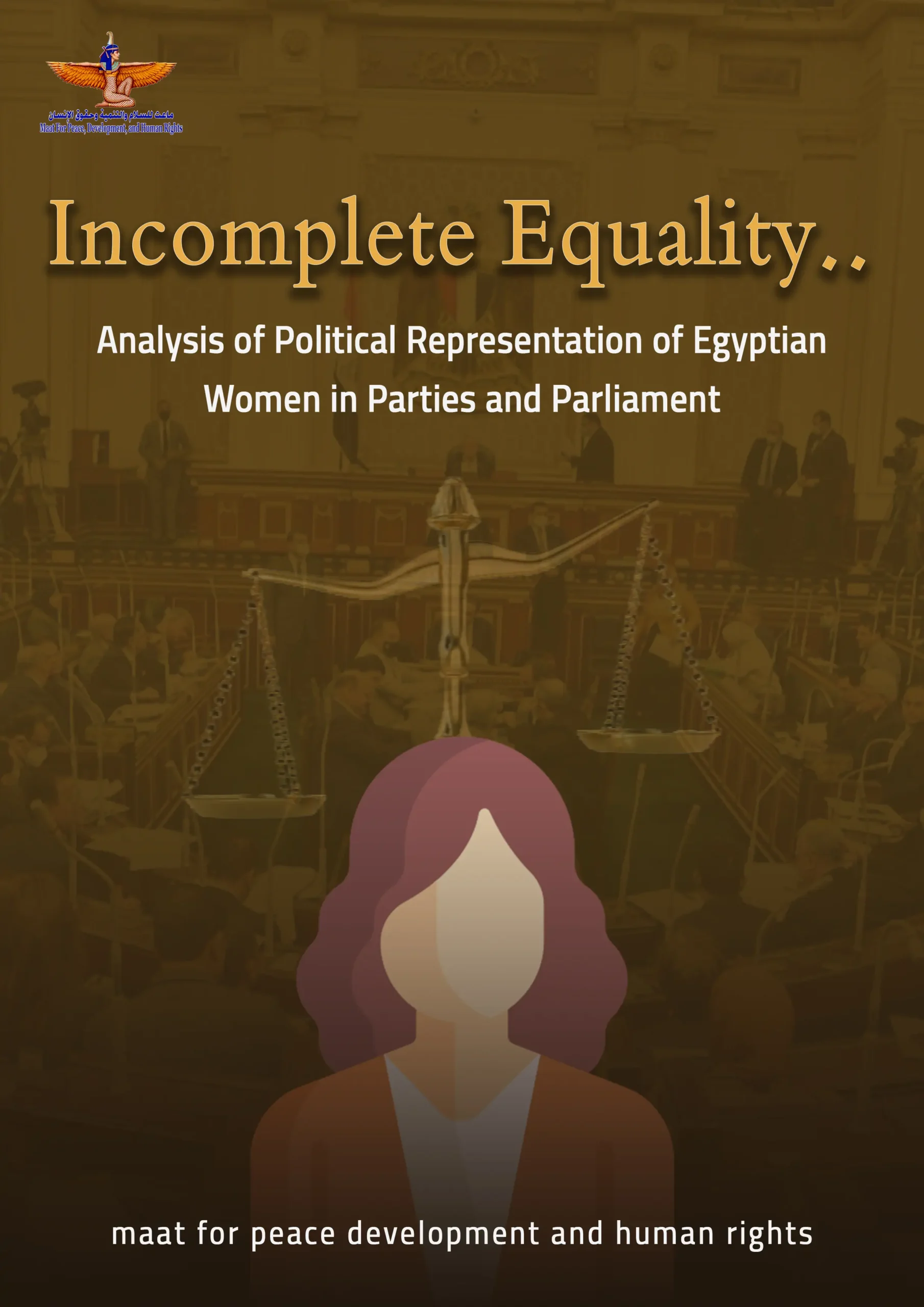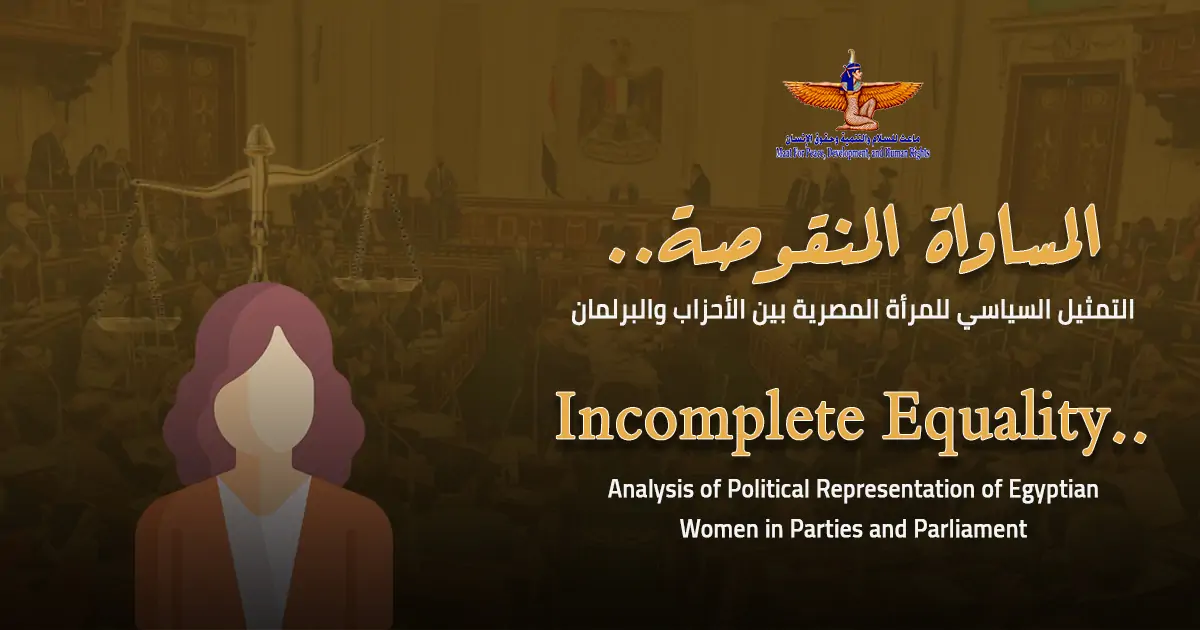In a new study, Maat sheds light on Political Representation of Egyptian Women among Parties and Parliament
Okeil: Parties Should Enhance Women Political Representation and Integrate Human Rights into their Programs
Maat for Peace, Development and Human Rights has issued a new study entitled "Incomplete Equality: Analysis of Political Representation of Egyptian Women in Parties and Parliament." The study addresses the reality of political empowerment of Egyptian women in Parliament and political parties by reviewing women's representation in House of Representatives and Senate, and evaluating this representation in comparison to the status of women in previous parliaments. It also examines how women's parliamentary participation can be enhanced.
The study also addresses the reality of women's representation in leadership positions within political parties, the suitability of this representation, and its response to promoting gender equality. It examines the interest of political parties of all orientations in empowering women in leadership positions, whether through election or appointment and how women's participation in political parties can be developed and their presence in decision-making centers enhanced.
Human rights expert Ayman Okeil, Chairman of Maat, confirms that political parties are an active part of civil society and are expected to contribute to activating and integrating human rights into their programs, including women's rights and promoting gender equality. Parties can play this role through their presence among members of society and in various local areas, and by enhancing women's participation in elections, making parties an effective entity in supporting democracy and human rights.
Okeil stresses that parties need to enhance the political representation of women in order to integrate efforts with the state to empower women at all levels, including political and judicial positions. The study reveals that while the percentage of women in the House of Representatives has risen to 27%, and nearly 14% in the Senate, and women have reached 25% of ministerial portfolios, 31% of Deputy Governors, and 27% of Deputy Ministers, as well as holding positions as presidents of neighborhoods and city councils and National Security Advisor to the President of the Republic.
The study reveals that despite women’s representation in Parliament through parties adheres to constitutional and legal requirements, there is a weakness in the percentage of women’s presence in the parties’ supreme bodies, and absence of women in decision-making positions in political parties, which means their continued weakness in the institutions of making and practicing Politics and building women's political cadres, even if the parties are committed to nominating women in Parliament according to the constitutional percentage.
The study indicates that supporting and empowering women is not a priority for parties, and women are not given the opportunity to lead parties, which is supposed to be part of enabling women to participate and have a greater influence in the public scene by refining their experiences in political parties. This requires that parties re-evaluate their vision regarding empowering women, provide the opportunity for women to reach leadership positions, increase awareness of their political role, the importance of their community and political participation, and support their economic empowerment.

 |
 |
shortlink: https://maatpeace.org/en/?p=42878












